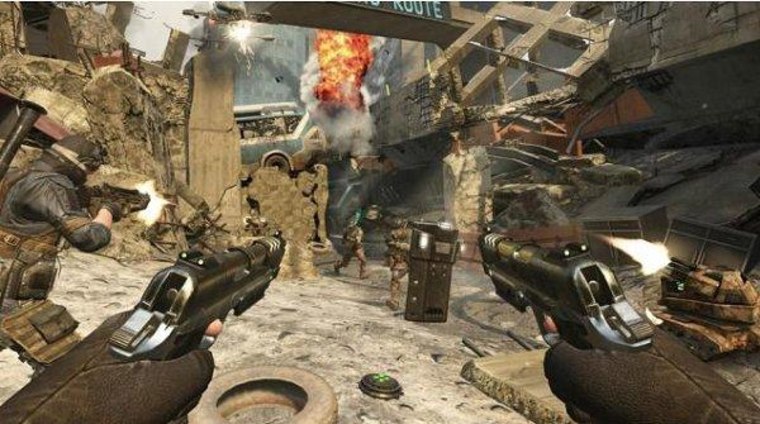It's been nearly two months since the mass shooting at Sandy Hook Elementary in Newtown, Conn., and in that time, there's been quite a bit of debate about gun violence. Some of it, however, has led segments of the population to draw curious conclusions.
Last week, for example, Sen. Lamar Alexander (R-Tenn.) told msnbc, "I think video games is [sic] a bigger problem than guns, because video games affect people." It was an odd thing for anyone, least of all a sitting senator, to say on national television.
But the sentiment, however strange, appears to reflect the opinions of Alexander's party.
As Republican leaders insist that the debate over gun violence in America should also address the role of violent entertainment, the latest findings from Democratic-leaning Public Policy Polling released Thursday showed that the vast majority of GOP voters nationwide believe video games are a bigger threat than guns.Given the choice between the two, 67 percent of Republican voters said violent video games represent a bigger threat to safety than guns. Fourteen percent said guns are the bigger safety threat.
I'll gladly concede that societal violence is an extremely complex, multi-faceted problem, and there are cultural factors to consider.
But to think virtual guns pose a more serious threat to the public than actual guns -- by a lopsided margin -- is to overlook the available evidence.
To reiterate what we discussed last week, even if we put aside the irony of the underlying point -- blaming simulated, pixelated guns is fine; blaming actual guns is not -- these arguments aren't new. Plenty of officials have been arguing for years that violent games desensitizes young people to violence and contributes to a larger corrosive effect on the culture.
There's just very little evidence to support the claims. Hunches and cultural criticisms notwithstanding, social science research does not bolster the contention that gaming and gun violence are connected. (Adam Lanza was reportedly obsessed with "Dance Dance Revolution" -- which is a game, as the name suggests, about moving feet, not shooting weapons.)
For that matter, the United States is not the only country with young people who play a lot of video games, but it is the only country with high rates of gun violence.
Gaming is a huge cultural phenomenon in countries like South Korea, England, Japan, and Canada -- and they're all playing many of the same games Americans enjoy -- and yet, none of these countries comes close to the U.S. when it comes to deadly shootings.
And why not? Sociologists can speak to the differences in more detail, but I suspect it has something to do with access to firearms. It may seem tautological, but let's state it for the record anyway: societies with fewer guns have less gun violence, whether they're playing "Halo" or not.
